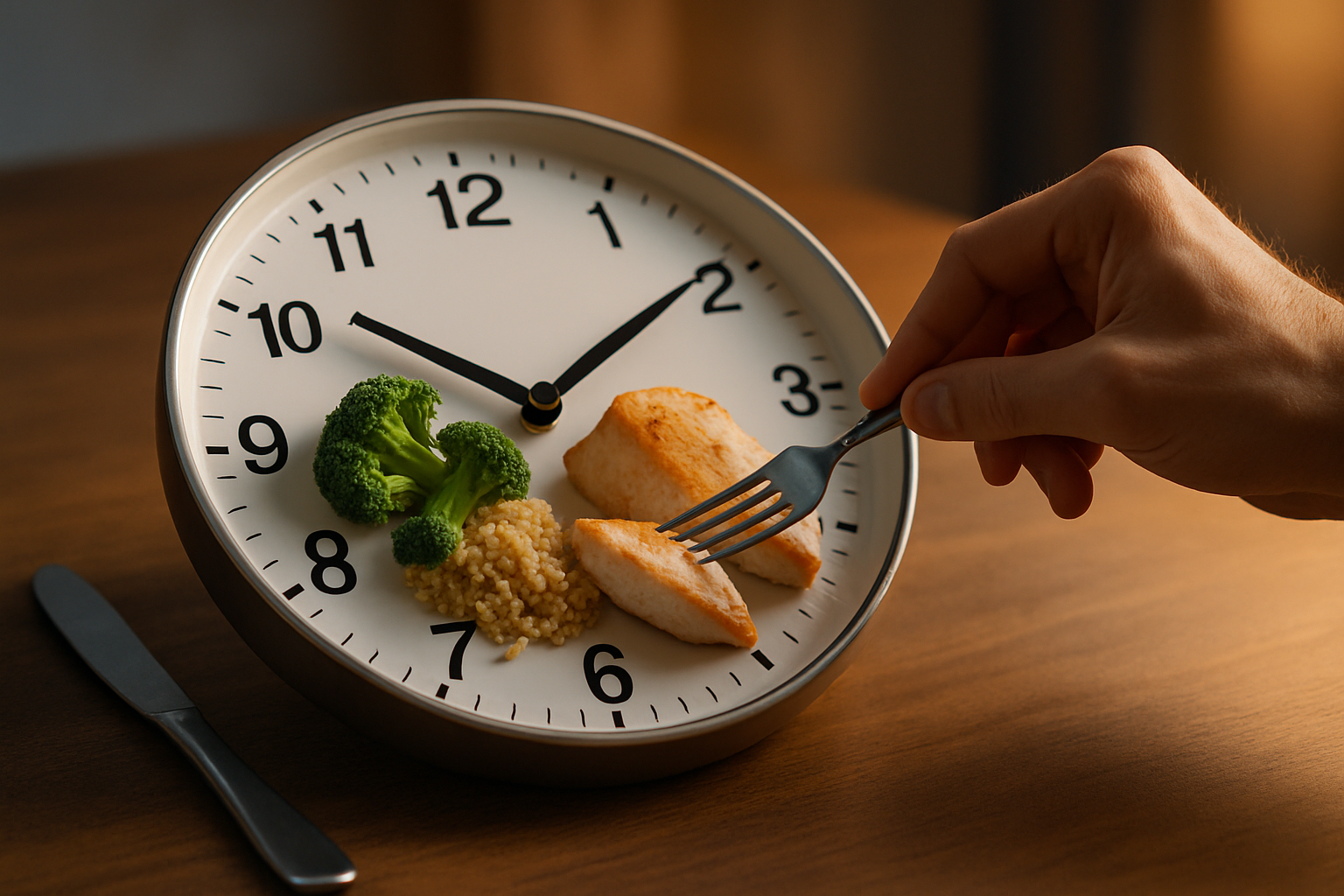Chrono-Nutrition: Timing Your Meals for Optimal Health
In the ever-evolving world of wellness, a revolutionary approach to eating is gaining traction among health enthusiasts and nutritionists alike. Chrono-nutrition, the practice of aligning meal times with our body's natural circadian rhythms, is reshaping our understanding of when to eat for maximum health benefits. This innovative concept goes beyond the traditional focus on what we eat, emphasizing the crucial role of meal timing in optimizing metabolism, hormone regulation, and overall well-being. As we delve into the science behind chrono-nutrition, we'll explore how this time-based approach to eating could potentially transform our dietary habits and lead to significant improvements in health outcomes across various populations.

Studies have shown that consuming meals in sync with our circadian rhythm can lead to improved metabolic health. For instance, eating earlier in the day when insulin sensitivity is at its peak can result in better blood sugar control. Conversely, late-night eating has been associated with increased risk of obesity and metabolic disorders, as the body’s ability to process food efficiently decreases in the evening hours.
Chrono-Nutrition Principles
The core principles of chrono-nutrition revolve around aligning meal times with the body’s natural rhythms. This typically involves:
-
Eating larger meals earlier in the day
-
Limiting food intake in the evening
-
Maintaining consistent meal times
-
Allowing for longer fasting periods overnight
Proponents of chrono-nutrition argue that by following these principles, individuals can optimize their metabolism, improve digestion, and potentially reduce the risk of chronic diseases associated with poor metabolic health.
Implementing Chrono-Nutrition in Daily Life
Adopting a chrono-nutrition approach doesn’t necessarily require drastic changes to one’s diet. Instead, it focuses on adjusting meal timing to better align with the body’s natural rhythms. Some practical strategies include:
-
Front-loading calories: Consuming a larger breakfast and lunch, with a lighter dinner
-
Setting a cut-off time for evening meals, ideally 2-3 hours before bedtime
-
Maintaining consistent meal times across weekdays and weekends
-
Incorporating intermittent fasting by extending the overnight fasting period
These adjustments can help synchronize eating patterns with the body’s circadian rhythm, potentially leading to improved metabolic function and overall health.
Benefits of Chrono-Nutrition
Emerging research suggests that adopting a chrono-nutrition approach may offer numerous health benefits:
-
Improved weight management: Studies have shown that individuals who consume larger meals earlier in the day tend to have lower BMIs and better weight control.
-
Enhanced metabolic health: Aligning meal times with circadian rhythms may lead to improved insulin sensitivity and better blood sugar control.
-
Better sleep quality: Avoiding late-night eating can contribute to improved sleep patterns and overall sleep quality.
-
Reduced inflammation: Some studies suggest that chrono-nutrition may help reduce systemic inflammation, a key factor in many chronic diseases.
-
Improved digestion: Eating in sync with the body’s natural rhythms may enhance digestive function and nutrient absorption.
Challenges and Considerations
While chrono-nutrition shows promise, it’s important to acknowledge potential challenges in implementation:
-
Social and cultural factors: Many societies have established meal times that may not align with optimal chrono-nutrition principles.
-
Work schedules: Shift workers or those with irregular schedules may find it challenging to maintain consistent meal times.
-
Individual variations: Some people may have unique circadian rhythms that don’t align with typical recommendations.
-
Long-term adherence: Changing established eating patterns can be difficult, and maintaining new habits over time may prove challenging for some individuals.
Future Directions in Chrono-Nutrition Research
As interest in chrono-nutrition grows, researchers are exploring new avenues for understanding and applying these principles:
-
Personalized approaches: Developing individualized chrono-nutrition plans based on genetic factors, lifestyle, and personal circadian rhythms.
-
Chrono-nutrition and specific health conditions: Investigating how time-based eating patterns may benefit individuals with diabetes, cardiovascular disease, or other chronic conditions.
-
Technology integration: Exploring the use of wearable devices and apps to help individuals track and optimize their meal timing.
-
Long-term effects: Conducting longitudinal studies to assess the long-term impact of chrono-nutrition on health outcomes and longevity.
As our understanding of the intricate relationship between meal timing and health continues to evolve, chrono-nutrition stands poised to revolutionize our approach to eating. By aligning our meals with our body’s natural rhythms, we may unlock new pathways to improved health, vitality, and longevity. While more research is needed to fully understand the potential of this innovative approach, the growing body of evidence suggests that when we eat may be just as important as what we eat in our quest for optimal health and wellness.





